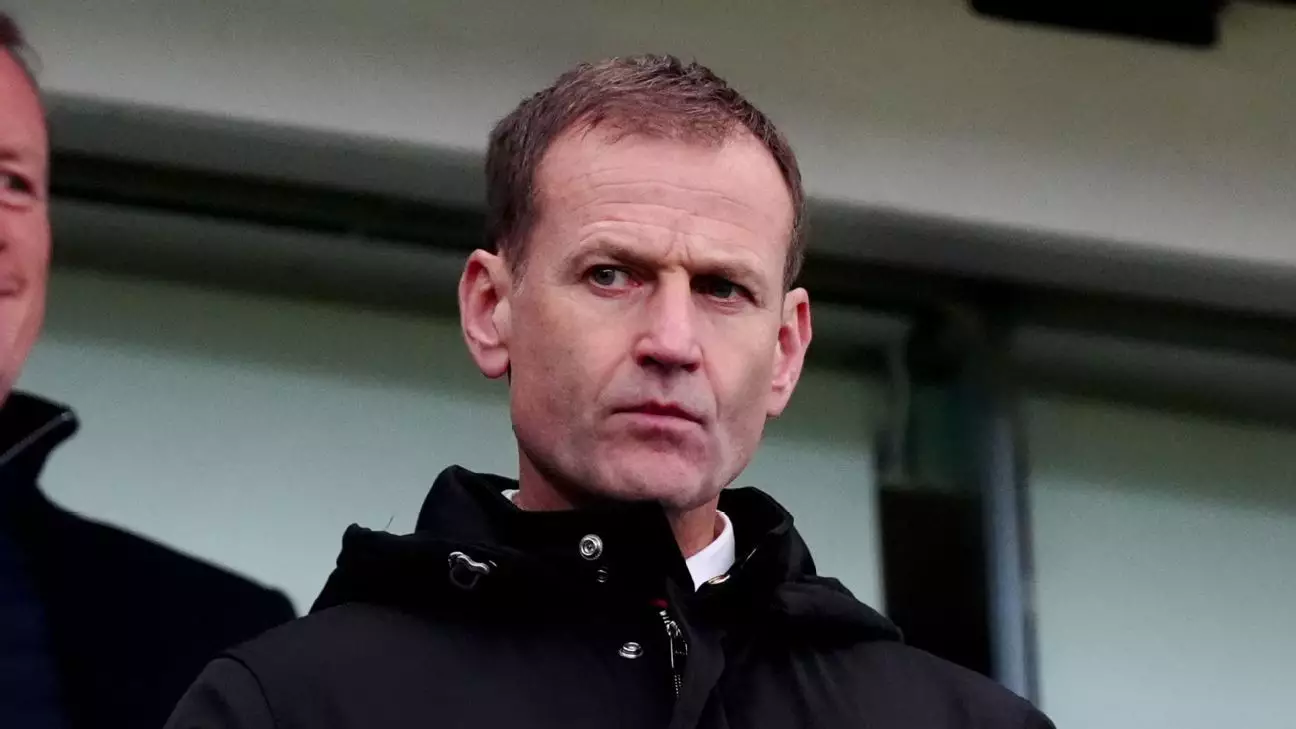Dan Ashworth’s abrupt departure from his role as sporting director at Manchester United after only five months raises significant questions about the stability and direction of the club’s management. Arriving at Old Trafford in July as part of a reshuffle led by Sir Jim Ratcliffe, Ashworth was expected to play a pivotal role in revitalizing a struggling team. However, his exit less than a month after the new head coach Ruben Amorim’s arrival suggests deeper issues at play.
Ashworth’s recruitment followed a protracted departure from Newcastle United, which reportedly involved a financial settlement exceeding millions of pounds. His experience in player recruitment and development made him a desirable candidate; yet, one must wonder why a club of Manchester United’s stature would choose to gamble on an individual whose only duty was to oversee the tumultuous transition made necessary after Erik ten Hag’s controversial sacking. The decision to appoint Ashworth presupposed the belief that he could forge a new path for the club, indicating a substantial risk that hasn’t paid off.
The team’s performance during Ashworth’s brief tenure can hardly be characterized as successful. United’s 3-2 loss to Nottingham Forest left the side languishing at 13th in the Premier League, boasting their lowest total points after 15 games since 1986. Despite securing significant signings with a combined expenditure exceeding £180 million in players like Matthijs de Ligt and Manuel Ugarte, the club’s fortunes on the pitch failed to reflect these investments. This stark discrepancy poses questions about not only the effectiveness of the recruitment strategy but also the overall cohesion of the squad.
Ashworth’s departure underscores the urgent need for accountability within the club’s hierarchy. Along with Ashworth, technical director Jason Wilcox and CEO Omar Berrada were instrumental in hiring Ruben Amorim, who faced the daunting task of steering a disorganized ship. The question remains whether both Wilcox and Berrada will face similar scrutiny or whether Ashworth’s resignation will serve as a scapegoat for broader structural failures within the club.
The Road Ahead
After Ashworth’s exit, Manchester United finds itself in a precarious position. The end of Ashworth’s tenure accentuates the rampant instability that has plagued the club for years. The challenge now lies not only in identifying a suitable replacement but also in instigating a cultural overhaul that promotes cohesiveness among its leadership. New leadership should aim to establish clarity in the club’s long-term strategy; anything less runs the risk of repeating past mistakes.
Ashworth’s blip on the Manchester United radar serves as a cautionary tale reflecting a club desperate for direction, but with a management approach that feels disjointed at best. As the fanbase watches closely, it remains critical that the club rectify its course swiftly, lest it fall further behind its rivals on and off the pitch.

Leave a Reply